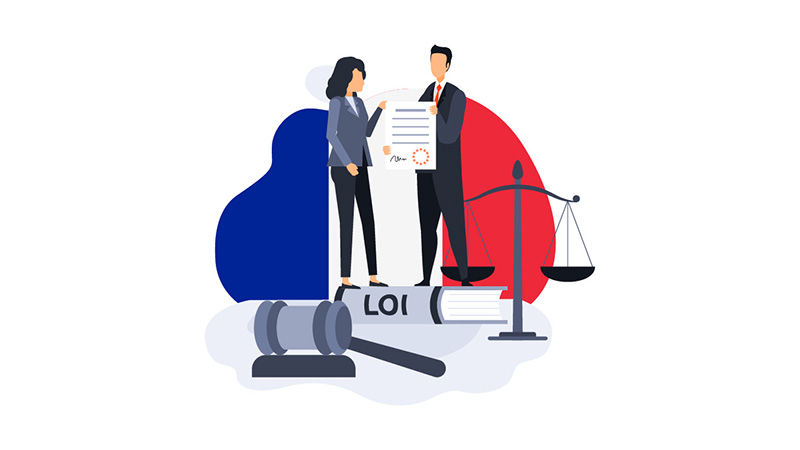What is the EU Whistleblowing Directive and why has France transposed it?
In June 2019, the European Parliament stated via press release that only 10 EU Member States offered full protection to whistleblowers with the remainder offering partial and sectoral protection. The EU Whistleblowing Directive set out to eliminate this patchwork framework and implement universal protections for whistleblowers across the bloc.
Under the Directive, all private and public sector employers with 250 employees or more were required to implement a whistleblowing system by 17 December, 2021, a deadline the vast majority of Member States missed. Smaller organisations with between 50 and 249 employees were given an extra year to prepare for the measures. Late 2022 finally saw noticeable progress with the majority of EU member states finally getting their respective national laws across the finishing line.
The situation in France before the transposition
As mentioned above, France was a pioneer in European whistleblower protection. In July 2015, Minister of Finance Michel Sapin proposed a new law prohibiting corruption and protecting whistleblowers. Modelled after the U.S. Foreign Corrupt Practices Act and the UK Bribery Act, Sapin 2 as it came to be known, became law in December 2016. Most of its provisions entered into force in June 2017 and they can be outlined as follows:
- Creation of the Agence Française Anticorruption (anticorruption agency) responsible for enforcement
- Companies with at least 500 employees and a turnover exceeding €100 million must implement a corruption detection and prevention program
- The establishment of a criminal settlement procedure called the judiciaire d’intérêt public (judicial convention in the public interest)
- With regards to international corruption, the law extended the extraterritorial application of French criminal law
- Whistleblower status was broadened and protection levels were increased
From June 2017, companies with 500 or more employees were required to implement an internal compliance program to fight corruption and trading in influence which also necessitated the creation of a whistleblowing system. In addition, companies with 50 or more employees were obliged to put a whistleblowing system in place from January 2018 whereby those speaking out would be afforded protection from retaliatory measures. It is notable to mention that the law did not provide for sanctions if such a system was not implemented.
In January 2021, the French Ministry of Justice launched a public consultation which resulted in a report to improve Sapin 2 which was published last July. While the existing measures were an essential first step in obliging companies to establish a whistleblowing system, the EU Directive imposes minimum and harmonious standards across the continent. Therefore, its transposition was also viewed as an opportunity to further strengthen the whistleblowing law in France.
France’s new whistleblowing law: The specifics
The bill to improve whistleblower protections in France was submitted by MP Sylvain Waserman and it upheld some of the key strides made under Sapin 2. This included the obligation for companies and public institutions with at least 50 employees as well as municipalities with more than 10,000 inhabitants to implement a whistleblowing system. Companies had to comply by September 2022. Some of the key elements of the new legislation are outlined below:
- Integrate the reporting procedure into internal regulations
- Reporting channels are designed, implemented and managed in a secure manner which guarantees the confidentiality of the whistleblower and any third party mentioned
- Access to whistleblowing channels by unauthorized staff is not permitted
- An impartial and competent contact person or service must be appointed to follow up on reports
- Diligent follow-up must occur throughout the procedure – this also applies to anonymous reports
- Clear and accessible information on external reporting procedures has to be provided
- Reports may be written or oral (by telephone or voicemail systems, and, if requested by the whistleblower a face-to-face meeting within a reasonable timeframe
A Council of State decree will also have the following impacts:
- Guarantee the independence and impartiality of the system
- Specify the feedback deadlines outlined by the Directive (receipt of a report must be acknowledged within 7 days and 3 months maximum to inform the whistleblower of the measures taken), though this will not apply in the event of an anonymous report
- Establish the procedures for closing reports, collecting and storing data
- Set out the conditions under which the collection of reports may be entrusted to a third party
Details about the definition of a whistleblower
- Another key point to mention is that the French legislation provides an updated definition of a whistleblower as well as creating a new statute for the facilitator. Under the law, a whistleblower is considered “a natural person who reports or discloses, without direct financial compensation and in good faith, information relating to a crime or misdemeanor, a threat or harm to the general interest, a violation or an attempt to conceal a violation of international or European law or regulation”.
There are some caveats, however. Information regarding secrecy surrounding national defense, medical affairs, confidentiality between a lawyer and the client as well as the secrecy of judicial deliberations are all excluded from the right to alert system.
Transposing the EU Directive also extends certain protections offered to whistleblowers, particularly protection against reprisals, to third parties such as legal partners who assist in making the complaint. A new status has therefore been established for the “facilitators”, which makes it possible to protect unions, associations, colleagues or relatives involved in the whistleblowing report.
Abolishing cascading reports
- Previously, the reporting process fell under Article 8 of the Sapin 2 law. An internal report was mandatory and if it was not processed, an external report was required, along with public disclosure if necessary. The transposition of the EU Directive abolished this “cascading reporting” – i.e. the hierarchy between reporting channels. The new whistleblowing law in France provides for the creation of an Article 1-7 which states “that in order to benefit from the protections provided for in this chapter, the persons mentioned in Article 6 (I) may, as an option”:
1. Send an internal alert, particularly if the violation can be handled effectively in this manner without risk of reprisal.
2. Send an external report, having already utilised the internal reporting channel or direct contact. In summary, if the internal channel is ineffective, the external channel can be harnessed. This can be addressed to the following parties:
- A competent external authority
- To the Defender of Rights who will forward it to the authority responsible for processin
- To the judicial authority
- To the institutions, bodies or agencies of the European Union responsible for handling information on violations of Union law.
3. Make a public disclosure, namely in the event of a lack of treatment following an external report within a certain period, the risk of retaliation or “serious imminent danger”.
In the case of anonymous reporting or public disclosure, people who have had their identity revealed, such as journalists, will be able to obtain whistleblower status, thus strengthening, in accordance with the Directive, the protection of sources. The new system will also see the Defender of Rights become responsible for redirecting alerts when an external authority does not consider itself competent. Throughout his or her career, the whistleblower will be able to benefit from the support of a new assistant to the defender of rights whose responsibilities are specified by a proposed organic law.
In summary
Despite the slight delay, the hard work of Sylvain Waserman, numerous trade unions, NGOs and compliance advocates helped deliver the EU Whistleblowing Directive to France ahead of most other EU Member States. The existing Sapin 2 legislation already represented an immense step in the fight against corruption and corporate wrongdoing, but the new law strengthens French whistleblower protections even further and brings the country’s measures in line with European standards.
Whistleblowing Laws in the European Union
A glance at the implementation of the EU Whistleblowing Directive in EU Member States








